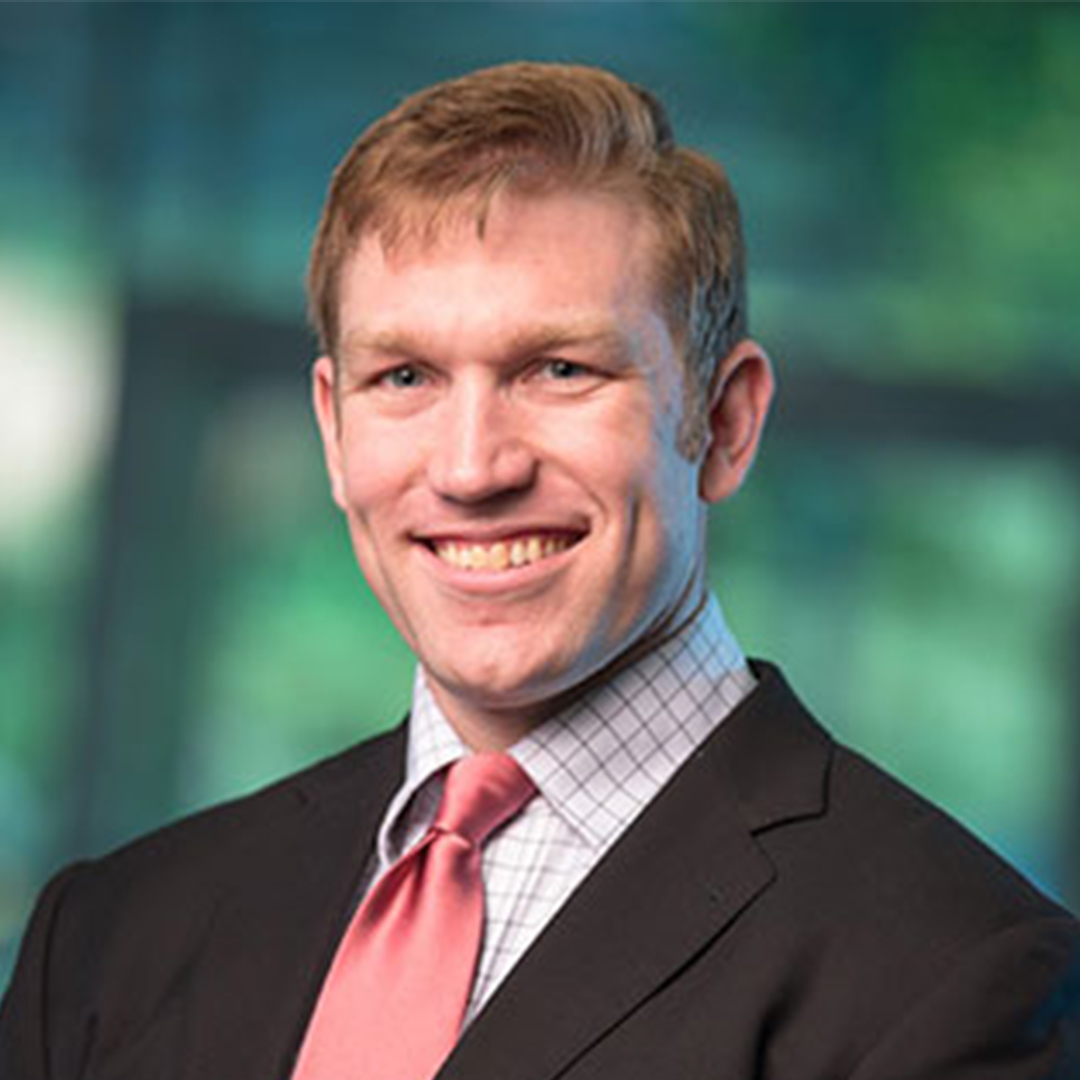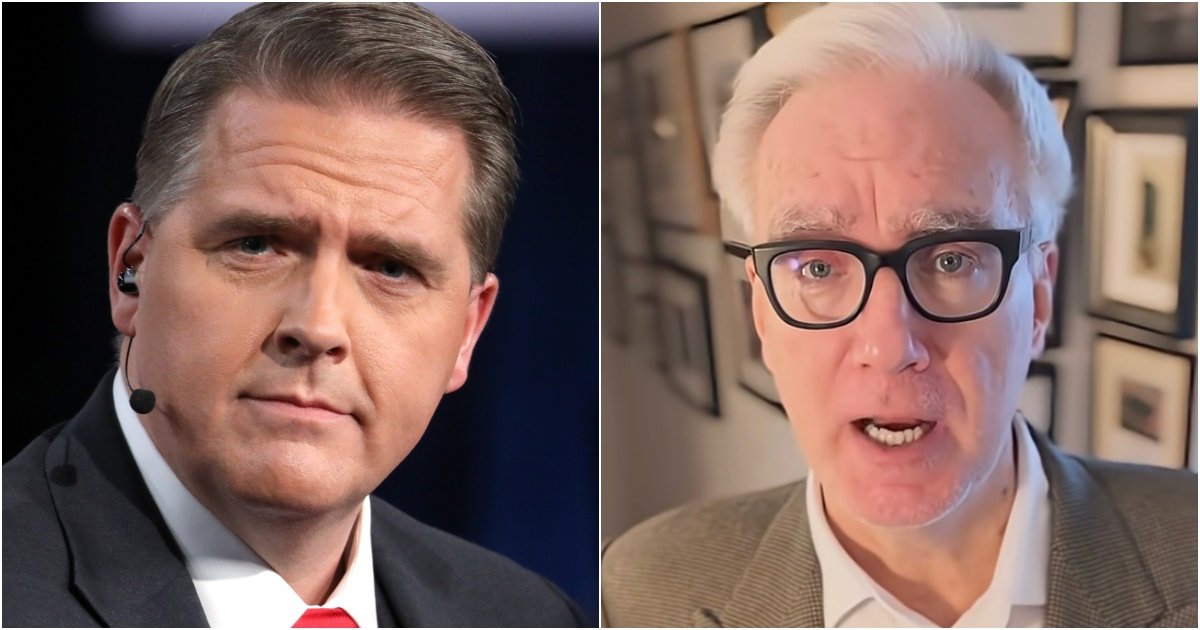Politics
Fixing the civil service must begin with trusting managers

Before the Trump administration blitzed the civil service over the last six weeks, it has been decades since the last major attempt to reform the federal personnel system.
Lawmakers haven’t passed a major bill to broadly restructure federal workforce rules in years. There was the Civil Service Reform Act of 1996, sponsored by Rep. John Mica (R-Fla.) that passed the House, but never made any progress in the Senate. In 2008, Rep. Mac Thornberry (R-Texas) wanted to create a civil service commission to study seven broad areas of the federal personnel system, including compensation, recruiting, retaining employees an policies and barriers to terminating under-performing workers. That bill never got out of committee, let alone get a vote by either body of Congress.
Sure there have been successful attempts at reform along the edges, like the Chance to Compete Act becoming law in 2024 or efforts to address pay issues for specific skillsets like cybersecurity with the Cyber Talent Management System at the Homeland Security Department.
But mostly, lawmakers on both sides of the aisle have largely given up on major civil service reform efforts.
While the federal civil service system has been slow to evolve, there is a growing set of successful changes at the state level that lawmakers and agencies could consider. And when the Trump administration’s “shock and awe” strip down of the federal workforce is done, the Manhattan Institute is offering a roadmap for what its authors say are lasting and impactful reforms.
Judge Glock is the director of research and a senior fellow at the Manhattan Institute.
“States can teach the federal civil service about civil service reform because in a lot of different areas the reforms at the state level would be unimaginable to many people in the federal civil service. Many of these state civil service systems have gone to almost complete at-will employment, many of them went to extremely decentralized hiring authority down to individual agency managers with very little oversight from a central personnel office. Many of them have very broad, banded pay scales and a lot of pay flexibility. And many of them have very limited to no collective bargaining for someone who worked in the states,” said Judge Glock, the director of research and a senior fellow at the Manhattan Institute, in an interview with Federal News Network. “A lot of these states have tens of thousands of public employees in them. They were very large workforces, and many of them been operated under what’s called by academics, even radical civil service reform for decades at this point. The sort of reforms that have worked in Texas and their education bureaucracy, their transportation bureaucracy and their health bureaucracy can certainly be imported in whole or in part, into the Department of Veterans Affairs or the Department of Transportation and other agencies.”
The study, Radical Civil Service Reform Is Not Radical Lessons for the Federal Government from the States, highlights four changes that the authors say, generally speaking, have been successful across several states.
These include:
- At-will employment should be the norm, not the exception, for federal workers.
- Decentralized and flexible hiring should be fully adopted by the federal government.
- More flexibility for pay should be adopted at the federal level.
- Union collective bargaining over the conditions of employment should be banned at the federal level.
Glock said he recognizes that the first three are all doable at the federal level, but the end of collecting bargaining may be more difficult.
“At the very least, we should look closely at the results of these experiments as they were once called in the states, and see what the outcomes have been. Most of the academic literature has been pretty positive about the reforms,” he said. “Now, sometimes the academics will be a little uncertain about whether or not to say, on the whole, they were positive or they created a lot of great outcomes everywhere. But if you look at things from surveys of the public employees in these states, especially the human resource professionals in these states, and if you look at things like the lack of turnover or retention and other of these metrics of civil service success, these states look pretty good. They look a little better than the older, unreformed civil service states like California or New York. I just think there’s a lot of lessons there that haven’t been appreciated at all, frankly, in the DC civil service reform discussion.”
Let’s take the idea of moving the public sector to “at-will” employees, which means, again with some caveats, that your employer can remove you at any particular time and you can leave at any particular time.
No mass politicization
Glock said Georgia, under Gov. Zell Miller, a Democrat, moved to at-will employees in 1996.
“That means they usually didn’t have appeal or grievance rights outside of their own agency. Usually, these agencies did have internal grievance procedures, but they weren’t allowed to bring those to some equivalent of the Merit Systems Protection Board, and they weren’t allowed to bring those to firing or dismissal issues to courts,” he said. “Now, if you look at the states that have done this, there was a lot of understandable concern that you’d see mass politicization, mass turnover after elections, including elections that put a different party into office, and that you might see a decline in employee satisfaction and other sort of metrics. Now, on the whole, that hasn’t happened.”
While Glock said there’s certainly been individual issues in states about some firings and some concerns reported about political actions by supervisors, the data shows the reforms largely have been positive.
He pointed to a survey of Texas human resource managers, which found about 11% said they had ever thought of an instance where politics or connections had influenced a personnel decision. Glock said he didn’t think that is extraordinary as compared to the traditional civil service in Texas or in DC or elsewhere.
He said other data shows there’s some areas that have seen slightly higher turnover and removals, but still in most places, it was nowhere approaching the private sector level of removals.
The move to decentralized hiring authorities in states, such as Florida, Arizona, Kansas and Missouri in the 1990s gave individual agency managers almost “carte blanche discretion” to hire whomever they think best.
“A lot of these states that have moved to more decentralized hiring seem to be working very efficiently. You haven’t seen examples of mass political hiring merely because of preference. I think, partially, because of those constitutional protections that prevent people from being removed merely because they differ with the governor or the president in charge in terms of party or ideology,” he said. “You seem to have more efficiency that you have agencies, again, especially in Texas, which is famous for its decentralized human resource system, where they don’t even have a central personnel office. People can tailor their hiring needs the needs of their own agency. They don’t need to go to the central office all the time to get approval for every hire, every posting or every way they evaluate it.”
Managers given more discretion
The third recommendation of implementing a broad banded pay system isn’t necessarily new to the federal sector. The Government Accountability Office, for example, uses pay bands. The Defense Department piloted pay-for-performance in the early 2000s before abandoning it in 2009.
Glock said that states have had better success, particularly for positions where output measurement is clear.
“What a lot of states, especially Florida, South Carolina and other states, have done is they’ve collapsed their large number of job titles and classification schedules to a very small number, and inside each of those job, position or classification titles, they have pretty broad pay scales in which the top pay can be up to three times the bottom level pay,” he said. “That gives managers a lot more discretion to say, ‘Hey, I know this employee is doing very well. I think they’re performing great. I think I couldn’t get them if I had to pay them just the minimum scale. So, I’m going to pay them than two and a half times what they I normally would pay them.’ The managers in those states say that works. There’s a lot more retention of high-quality employees. That’s been one of the consistent findings of the research studies.”
Glock added that while the current civil service approach to pay includes step increases, the ability to give hiring managers a bigger say in how much they pay employees seems to drive better results.
“The overall lesson that we’re finding in this report is that states that trust their managers more tend to do better,” he said. “States that trust their public employees managers to manage how much their workers get paid, to allocate pay inside their departments, to decide their own disciplinary procedures, to decide their own hiring procedures, tend to do better because those managers closer to the ground tend to know what’s required.”
That concept of trusting your employees to make pay and personnel decisions has been lost to great degree in a system initially built in 1883 and updated in 1978.
The post Fixing the civil service must begin with trusting managers first appeared on Federal News Network.
Politics
Black Lives Matter Activist in Boston Pleads Guilty to Federal Fraud Charges – Scammed Donors to Fund Her Lifestyle

Screencap of YouTube video.
A Black Lives Matter activist in Boston named Monica Cannon-Grant pleaded guilty to federal charges this week, admitting that she scammed donors and used their money to fund her own lavish lifestyle.
Cannon-Grant was previously held up as an admired figure. The city of Boston named her the Bostonian of the year at one point for her ‘social justice activism’ and she was even recognized by the Boston Celtics basketball team for her efforts.
She is now facing a minimum of two years in prison.
The New York Post reports:
BLM-linked activist admits conning donors to fund her lavish lifestyle
A once-celebrated Boston social activist has pleaded guilty to defrauding donors — including Black Lives Matter — out of thousands of dollars that she used as a personal piggy bank.
Monica Cannon-Grant, 44, pleaded guilty Monday to 18 counts of fraud-related crimes that she committed with her late husband while operating their Violence in Boston (VIB) activists group, according to the US Attorney’s Office in Massachusetts.
The activist scammed money — including $3,000 from a BLM group — while claiming it was to help feed children and run protests like one in 2020 over the murder of George Floyd and police violence.
Cannon-Grant also conned her way into getting $100,000 in federal pandemic-related unemployment benefits — which she used to pay off her personal auto loan and car insurance policy.
But she has now confessed to transferring funds to personal bank accounts to pay for rent, shopping sprees, delivery meals, visits to a nail salon — and even a summer vacation to Maryland.
Just amazing.
Monica Cannon-Grant stole from donors, scammed the government, and lived it up while preaching about oppression. BLM grift is the only nonprofit where fraud is part of the mission statement. https://t.co/ir3q9lqYrh
— Matthew Newgarden (@a_newgarden) September 23, 2025
BREAKING: BLM activist Monica Cannon-Grant pleads guilty to 27 fraud charges, misusing over $1M from Violence in Boston for personal gain. Echoes Sir Maejor Page’s $450K scam conviction. A wake-up call for nonprofit accountability. pic.twitter.com/N9vvD369gB
— (@pr0ud_americans) September 14, 2025
Here’s a local video report:
She should pay back every penny.
The post Black Lives Matter Activist in Boston Pleads Guilty to Federal Fraud Charges – Scammed Donors to Fund Her Lifestyle appeared first on The Gateway Pundit.
Politics
Keith Olbermann Backpedals Furiously With Apology for Threatening CNN’s Scott Jennings – Jennings Responds (VIDEO)

As the Gateway Pundit reported yesterday, former MSNBC host and generally unhinged leftist Keith Olbermann, appeared to threaten CNN’s conservative pundit Scott Jennings on Twitter saying, ‘You’re next motherf**ker.’
Well, Olbermann may have gotten a phone call or a visit from the FBI because today he walked back those comments with a full-throated apology.
RedState has an update:
To quickly recap, Scott Jennings, a Salem Media Network radio host and conservative CNN political commentator, reacted to breaking news on Monday that Kimmel had been reinstated by tweeting, “So basically his employer suspended him for being an insensitive pr**k, and we don’t live in an authoritarian regime? Got it.”
This enraged Olbermann, who proceeded to tweet what many, including Jennings, perceived to be a threat. “You’re next, motherf**ker. But keep mugging to the camera.” Jennings tagged Patel and included a screengrab of the tweets in response.
Though the FBI hasn’t commented as to whether an investigation was launched, Olbermann ostensibly appears to have thought twice about what he tweeted and deleted, apologizing profusely in tweets posted on Tuesday and claiming what he wrote was “misinterpreted”:
See Olbermann’s tweet below:
I apologize without reservation to @ScottJenningsKY
Yesterday I wrote and immediately deleted 2 responses to him about Kimmel because they could be misinterpreted as a threat to anything besides his career. I immediately replaced them with ones specifying what I actually meant. pic.twitter.com/SPWLb73nEk
— Keith Olbermann (@KeithOlbermann) September 23, 2025
I oppose and condemn political violence, and the threat of it. All times are the wrong time to leave even an inadvertent impression of it – but this time is especially wrong
I should've acknowledged the deletion and apologized yesterday. I'm sorry I delayed.
— Keith Olbermann (@KeithOlbermann) September 23, 2025
Scott Jennings, always a class act, offered this hilarious response:
SCOTT JENNINGS: “Marking myself SAFE from that NUT, Keith Olbermann!” pic.twitter.com/EYZX6vm5Oh
— Dustin Grage (@GrageDustin) September 23, 2025
Keith Olbermann really needs help. The guy is just so out of control.
The post Keith Olbermann Backpedals Furiously With Apology for Threatening CNN’s Scott Jennings – Jennings Responds (VIDEO) appeared first on The Gateway Pundit.
Politics
Where is Lance Twiggs? Kirk Assassin’s Transgender Lover Has Vanished

 Charlie Kirk assassin Tyler Robinson and roommate Lance Twiggs
Charlie Kirk assassin Tyler Robinson and roommate Lance Twiggs
Charlie Kirk assassin Tyler Robinson lived with his transgender partner – a male-to-female trans named Lance “Luna” Twiggs.
The FBI used Robinson’s texts with his transgender partner to solidify that Robinson was the assassin. Lance Twiggs has not been charged with any crime; however, federal authorities are still investigating.
Last week, Utah authorities released the text exchange between Tyler Robinson and his transgender lover, Lance Twiggs, sent shortly after Kirk’s assassination.
Utah County District Attorney Jeff Gray announced seven charges against Charlie Kirk assassin Tyler Robinson. They will also be seeking the death penalty.
Robinson was charged with:
– Count 1: Aggravated murder (capital offense)
– Count 2: Felony reckless discharge of a firearm causing bodily injury
– Count 3: Felony obstruction of justice for hiding the firearm
– Count 4: Felony obstruction of justice for discarding the clothing he wore during the shooting
– Count 5: Witness tampering for asking roommate to delete incriminating messages
– Count 6: Witness temperating for demanding trans roommate stay silent, and not speak to police
– Count 7: Commission of a violent offense in the presence of a child
Jeff Gray released the chilling texts between Tyler Robinson and his “love” Lance Twiggs.
Read the text exchange here:
 Tyler Robinson texts with transgender lover Lance Twiggs / 1
Tyler Robinson texts with transgender lover Lance Twiggs / 1
 Kirk assassin Tyler Robinson texts with transgender lover Lance Twiggs / 2
Kirk assassin Tyler Robinson texts with transgender lover Lance Twiggs / 2
Lance Twiggs was reportedly cooperating with the FBI, however, according to the Daily Mail he has seemingly vanished.
“If [Lance Twiggs] ever comes back, it will be in a body bag,” a neighbor said to the Daily Mail. “That’s not a threat – I’m just saying that there are so many people who want a piece of him he’d be mad to show his face in public again. This was a generational event.”
The Daily Mail reported:
The Trans boyfriend of Charlie Kirk’s alleged assassin has fled their former lovenest – and locals tell the Daily Mail they never want to see him again.
Lance Twiggs, 22, was led away for questioning when police swooped on the smart three-bed condo he shared with accused gunman Tyler Robinson, 22.
Shaken neighbors say the part time plumber has not been back to the $320,000 property in St. George, Utah – one declaring: ‘Good riddance. I never want to see either of them again.’
His beaten-up Infinity compact is still parked in his space with his work gear tossed across the back seat and a sandwich wrapper and a drink on the front passenger seat.
Upstairs lights have been left on for more than a week and notes and Amazon packages are piling up outside the home owned by Twiggs’s devout Mormon family.
The post Where is Lance Twiggs? Kirk Assassin’s Transgender Lover Has Vanished appeared first on The Gateway Pundit.
-

 Entertainment6 months ago
Entertainment6 months agoNew Kid and Family Movies in 2025: Calendar of Release Dates (Updating)
-

 Entertainment3 months ago
Entertainment3 months agoBrooklyn Mirage Has Been Quietly Co-Managed by Hedge Fund Manager Axar Capital Amid Reopening Drama
-
Tech6 months ago
The best sexting apps in 2025
-

 Entertainment5 months ago
Entertainment5 months agoKid and Family TV Shows in 2025: New Series & Season Premiere Dates (Updating)
-

 Tech7 months ago
Tech7 months agoEvery potential TikTok buyer we know about
-
Tech7 months ago
iOS 18.4 developer beta released — heres what you can expect
-

 Tech7 months ago
Tech7 months agoAre You an RSSMasher?
-

 Politics7 months ago
Politics7 months agoDOGE-ing toward the best Department of Defense ever



